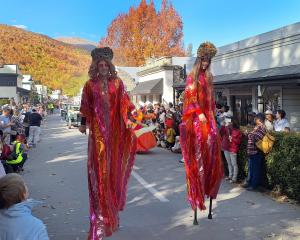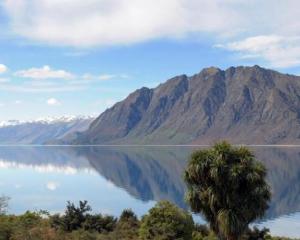Ms Mackay, a Lakes District Hospital midwifery co-ordinator and core midwife, has been in the profession for three years, one as a community midwife.
She took up a role with the Southern District Health Board after a year of community midwifery, which means calls and call-outs are possible at all hours.
Yesterday was International Day of the Midwife and various celebrations honoured midwives.
The theme this year was ''The world needs midwives now more than ever''.
Midwives work in a variety of settings across the area covered by the Southern District Health Board, including home birth and small primary birthing units for women with normal pregnancy and birth, through to secondary and tertiary hospital birth units and maternity wards for women with complex medical and pregnancy issues.
Ms Mackay said community midwives were on call 24 hours a day and ''there are some women who will abuse that a little bit'', adding some calls received were not about emergency issues.
She became a midwife after having her own children and said what people might not realise was the demands placed on midwives.
A lot of the time they were on their feet and thinking constantly, which was tiring.
''We are available at the end of a phone or the drop of a hat.
''There is no typical day [of a midwife], which is another good part of the job.''
Two midwives must be present at births and the hospital midwives supported their community equivalents when they brought women in to give birth.
''We do deal with life-and-death situations.
''I think we do cope quite well,'' she said, adding there was ample support from doctors and nurses.
''And we debrief a lot.
''It's a really rewarding job because most of the time it's happy.''
The worst part of the job, she said, was ''probably those sad times''.
''Death is a reality of life. Losing a baby or a mother [can happen] but, thankfully, not very often.''
The numbers
Each year:
• About 1800 babies are born in Dunedin Hospital. About 1200 are born in Southland Hospital.
• About 500 are born at home or in primary maternity units, of which the Lakes District Hospital is one.
In Queenstown there are:
• Two teams of four community midwives.
• Five permanent midwives at Lakes District Hospital.
• Two casual midwives who relieve at the hospital.












